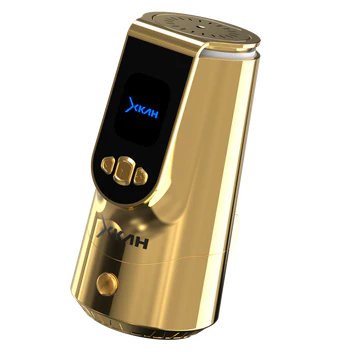The rise of electronic hookah devices, such as the XKAH Pro, has prompted a closer examination of their legal status and regulatory frameworks across different regions. As these innovative products gain popularity among hookah enthusiasts, understanding the global landscape of regulations becomes essential for businesses aiming to distribute or manufacture them responsibly.
Regional Variations in Regulation
Electronic hookah devices, including the XKAH Pro, face varying degrees of regulation depending on the jurisdiction. In some countries, these devices are treated similarly to traditional tobacco products, subject to the same advertising restrictions, age limits, and taxation policies. For instance, in regions with stringent tobacco control laws, the XKAH Pro may need to comply with labeling requirements and health warnings to ensure consumer safety. Conversely, other areas might classify electronic hookahs as separate entities, imposing unique regulations tailored to their electronic nature and potential health impacts.
Compliance and Certification Standards
To navigate the complex regulatory environment, manufacturers of electronic hookah devices like the XKAH Pro must adhere to a range of compliance and certification standards. These standards often encompass safety testing for electrical components, emissions testing to assess potential health risks, and quality control measures to guarantee product consistency. By obtaining certifications from recognized bodies, such as those for electrical safety or product quality, the XKAH Pro can demonstrate its commitment to meeting international best practices and regulatory requirements, enhancing its credibility in the global market.
The Impact on Business Operations
For businesses involved in the distribution or manufacturing of electronic hookah devices, understanding and complying with global regulations is crucial. Non-compliance can lead to legal repercussions, including fines, product recalls, and reputational damage. The XKAH Pro, as a premium electronic hookah device, is designed with regulatory compliance in mind, ensuring that it meets the necessary standards for safe and legal use in various markets. This proactive approach not only protects the business but also provides peace of mind to consumers who trust the XKAH Pro for their smoking needs.
Conclusion
The legal status and regulatory landscape of electronic hookah devices, such as the XKAH Pro, are complex and ever-evolving. Businesses must stay informed about regional variations in regulation, comply with certification standards, and adapt their operations accordingly to thrive in the global market. By prioritizing regulatory compliance, manufacturers and distributors can ensure the safe and legal use of electronic hookah devices, fostering a responsible and sustainable industry. The XKAH Pro, with its commitment to quality and compliance, stands as a testament to the potential of electronic hookah devices to meet the demands of modern consumers while adhering to global regulatory frameworks.
